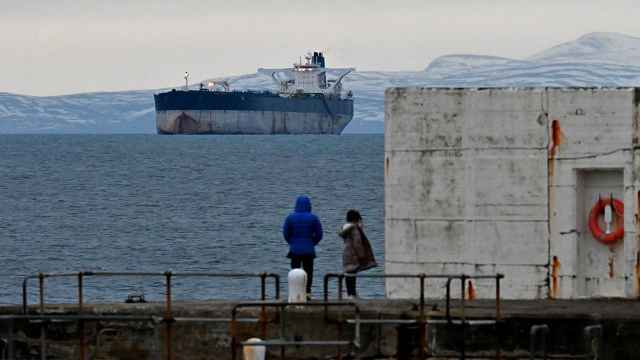In response to "Nordgold CEO Zelenski Prefers Business People to Molecules," a Q&A by Irina Filatova on Sept. 21.
Editor,
I enjoyed reading the Q&A about Nordgold CEO Nikolai Zelenski. He is obviously an accomplished and ambitious executive, and his company has experienced considerable and rapid growth in a very short period of time. I can certainly endorse his comments about the legal and regulatory environment in Russia: "Mining is a more tightly regulated industry, but it lacks the proper legal infrastructure familiar to foreign investors." But as someone representing Kinross Gold Corporation of Canada in Russia, I was surprised to read that he feels that it is "hard to find a successful example of foreign miners working in Russia."
Kinross has been actively mining gold and silver in Russia since 1995 and has enjoyed considerable success. Our first mine was the Kubaka Mine in the Magadan region, which produced more than 80 tons of gold while Kinross was the operator. In 2007, Kinross purchased the Kupol and Julietta gold mines from Bema Gold, also a Canadian-based mining company. Since the start of gold production at Kupol in the Chukotka autonomous district in 2008, the mine has produced well over 3 million gold equivalent ounces of metal. In 2010, Kinross acquired 100 percent ownership in the Dvoinoye Gold mine, also in Chukotka, and will begin mining gold and silver in the second half of 2013. Kinross has nine operating mines and four development projects in eight countries, and Russia is a very important part of our company's global operations. We believe that our positive experience is indeed a successful example of foreign investment in Russian mining.
I can also agree that the current regime for sub-soil management and mining regulation in Russia is a difficult one and that this is the primary reason why Kinross' experience has not been replicated by other significant international mining companies. Russia can and should attract more foreign investment in mining, and it was for this reason that in 2011, at the request of then-Prime Minister Vladimir Putin during the annual meeting of the Foreign Investment Advisory Council, Kinross prepared its report: "Fostering Foreign Investment in Mineral Exploration and Development in Russia." This report analyzes the reasons why other significant mining countries such as Canada and Australia have more success in attracting investment in mineral exploration and development than Russia. The report recommends a variety of regulatory and legal reform measures that the Russian government could consider implementing to attract more investment — both foreign and domestic — to Russia's rich hard-rock mineral resource sector.
Over the past year, we have been discussing our paper and recommendations with other mining companies in Russia, and also with the Russian government and lawmakers. We have encountered broad understanding of the barriers and appreciation of the volume of opportunities for significant investment that Russia has missed as a result of the regulatory environment. We have also been comforted by the number and significance of reforms that have been developed by the Natural Resources and Environment Ministry aimed at improving the investment climate in Russian mining. Some of these reforms have already been adopted, while more significant amendments are now being reviewed by various agencies of the Russian government. We remain hopeful that the favorable trend toward further reform will be maintained and that before too long there can be many more successful examples of foreign investment in the exploration and development of minerals in Russia that will be easier for everyone to find.
Related articles:
A Message from The Moscow Times:
Dear readers,
We are facing unprecedented challenges. Russia's Prosecutor General's Office has designated The Moscow Times as an "undesirable" organization, criminalizing our work and putting our staff at risk of prosecution. This follows our earlier unjust labeling as a "foreign agent."
These actions are direct attempts to silence independent journalism in Russia. The authorities claim our work "discredits the decisions of the Russian leadership." We see things differently: we strive to provide accurate, unbiased reporting on Russia.
We, the journalists of The Moscow Times, refuse to be silenced. But to continue our work, we need your help.
Your support, no matter how small, makes a world of difference. If you can, please support us monthly starting from just $2. It's quick to set up, and every contribution makes a significant impact.
By supporting The Moscow Times, you're defending open, independent journalism in the face of repression. Thank you for standing with us.
Remind me later.





